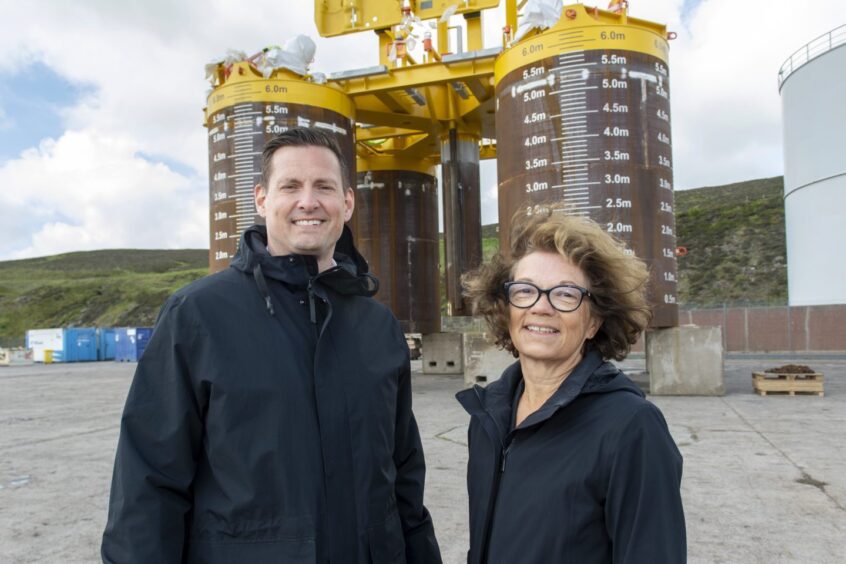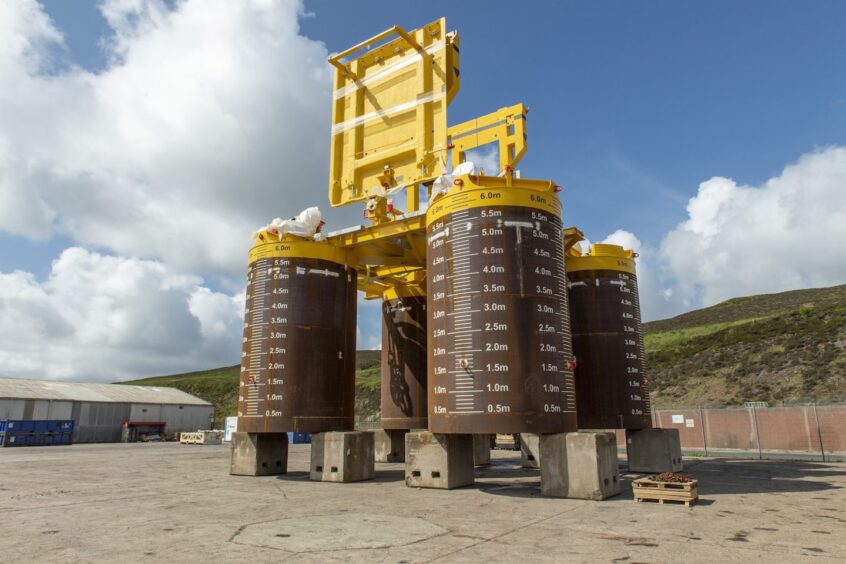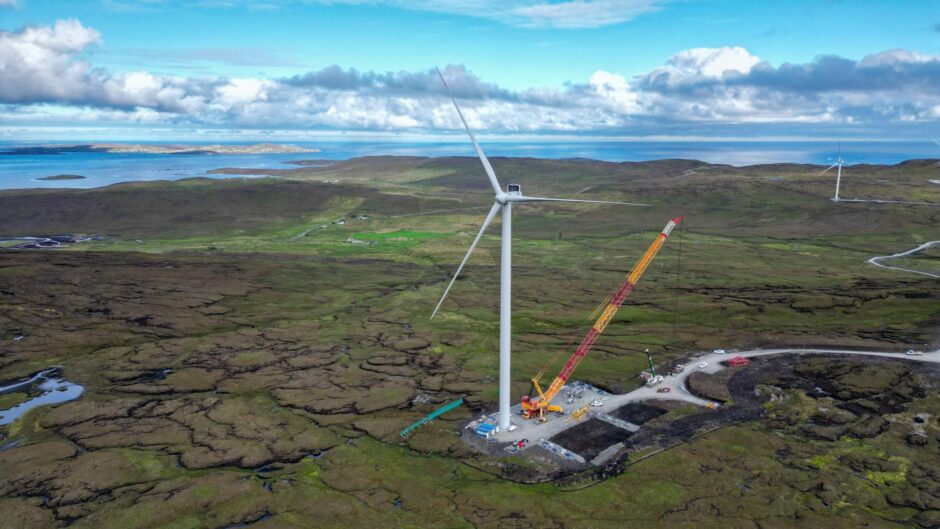
Work has begun on the installation of the Rosebank oil and gas development to the north-west of Shetland – with Lerwick playing a role in the process.
Equipment for the development has already arrived in Lerwick Harbour by boat to be shipped onwards to the field ahead of drilling starting next year.
A well template for instance is standing tall in a laydown yard at the Greenhead Base, with more shipments expected.
Shetland could also play a part in the electrification of the floating production storage and offloading (FPSO) vessel that will be used to process the oil and hook up to shuttle tankers for export.
One option could be to run a power cable to the FPSO from Shetland.
The Rosebank oil development – led by Norwegian company Equinor – was given approval by regulators last year, amid protests from environmental campaigners who say oil should be left in the ground in the push to net zero.
First oil is expected from Rosebank, which is located around 130 kilometres north-west of Shetland, in late 2026.
Rosebank is the largest undeveloped oil field in the region, with total expected resources sitting at around 300 million barrels.
A delegation of visitors involved in the development was in Shetland on Wednesday to see the port but also to hold an event with local partners and businesses.
The team said they were unable to place a figure on the financial benefit to Shetland from the project.
However, Lerwick Port Authority stands to be a key beneficiary given the vessel movements and equipment storage, while companies such as Peterson SBS, GAC Shipping and Lerwick Engineering and Fabrication (LEF) are also involved.
Meanwhile, across the whole Rosebank project, 2,000 jobs in total could be supported during its peak, with around £8 billion investment.
Speaking at the port on Wednesday morning, Rosebank project director Aud Hove said there have already been two shipments of equipment to Lerwick, with three more expected in the summer.
The number of shipments is expected to increase next year.
Nine suction anchors have already been installed at the Rosebank field, with more coming in June and July.
“We are bringing everything here [Lerwick] so that we can have efficient installation, having everything as close to the field as possible,” Hove said.
Equinor’s head of UK offshore activities Arne Gurtner added that Lerwick is “strategically positioned” for the development.
The project will see an oil rig structure do the drilling before the FPSO will come in to take up and process the oil.
The FPSO vessel Petrojarl Knarr will be connected to the development through flow lines.
Oil can be stored on the vessel – which will remain in location – before shuttle tankers will export it to market.
In terms of electrifying the FPSO, work has already begun on reconfiguring the vessel but Equinor was unable to provide any exact details about how power may be provided from Shetland.
“Our ambition is to electrify Rosebank as early as we can,” Gurtner said.
“Part of that is the work that we are doing on the vessel itself. The other part is looking at the power source, and we hope we can progress on that as well and secure a power source coming from Shetland.”
It also potentially ties into the complex energy jigsaw in Shetland which will see the isles connect to the national grid later this year and become a net exporter of power through the Viking Energy wind farm.
Electrification of offshore oil and gas assets has always been an element of the future energy set-up in Shetland and onshore wind power has previously been referenced by Equinor as a way of providing a “low carbon” source of energy via cable.
Meanwhile, the Equinor team said it was well aware of the environmental concerns which continue to swirl around the Rosebank development.
Their visit to Shetland coincidentally came on World Environment Day, which is a United Nations initiative.
Gurtner said Equinor has a “balanced approach” which also includes offshore wind and carbon capture and storage.
“We see there’s still a quite continued demand for oil and gas in society […]. That will decline and it has to decline,” he said.
“But in that decline, I think projects like Rosebank are actually the ones that should go forward, which come on with the lowest emissions as possible from the start and then with electrification opportunity along with that.”
Meanwhile, local climate campaigner Andrea Sanchez was among those who attended Equinor’s AGM last month in Norway.
Speaking in an opinion piece published by Shetland News following her trip to Norway, Sanchez said “Rosebank is a very good deal for Equinor and its shareholders but [is] a really bad deal for the people of Shetland and Scotland.”
Recommended for you

 © Supplied by Dave Donaldson
© Supplied by Dave Donaldson © Supplied by SSE Renewables
© Supplied by SSE Renewables